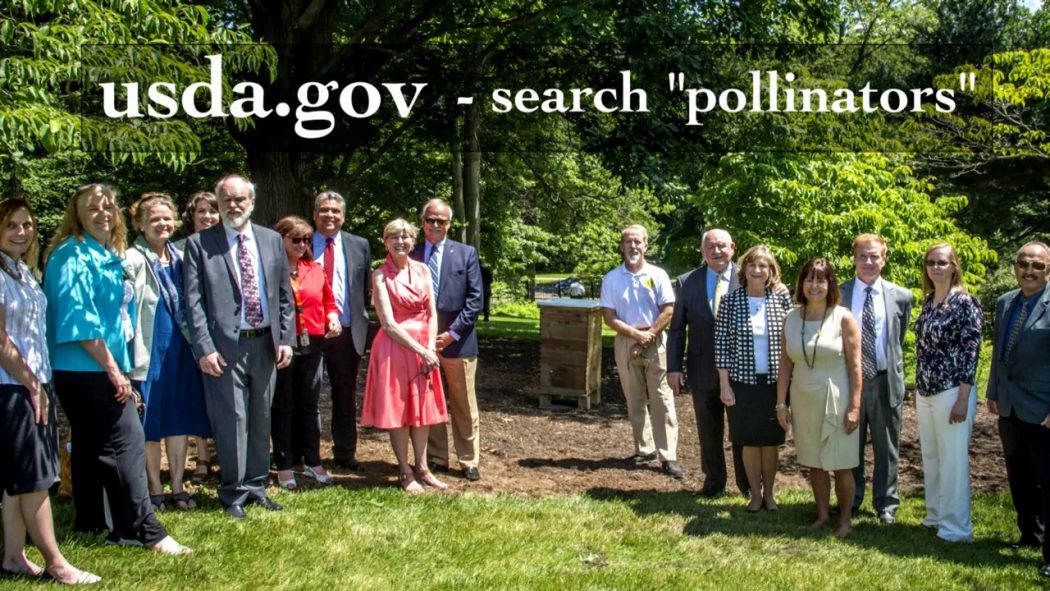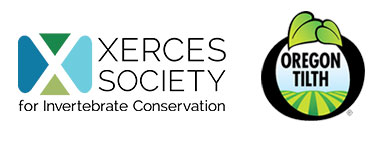WASHINGTON, June 19, 2017 – A new certification program enables agricultural producers to let consumers know they are farming in ways that benefit bees. Funded by a grant from the U.S. Department of Agriculture (USDA), the Xerces Society for Invertebrate Conservation partnered with Oregon Tilth to develop and launch the Bee Better Certified program .
“Bee Better Certified is working with conservation-minded farmers to meet a growing interest from consumers to know how their food choices impact bees,” said Xerces Executive Director Scott Hoffman Black. “Many species of bees have suffered declines over the years, but by creating habitat and reducing pesticide use, Bee Better is generating meaningful change on working farms, helping to preserve crop pollinators and the valuable services they provide to farmers.”
After piloting the program with 13 farmers over the past few months, Xerces and Oregon Tilth are now opening it to farmers nationwide. The program focuses on integrating flower-rich habitat on farms in order to provide food and nesting sites for native bees, honey bees and other pollinators. It also helps farmers reduce or eliminate use of pesticides known to cause harm to bees.
Oregon Tilth assesses and certifies farms based on the amount and quality of habitat created as well as the incorporation of pest management strategies aimed at protecting crop pollinators.
“When Xerces approached us as a possible partner, it seemed like a great fit,” said Oregon Tilth Certification Director Connie Karr. “We knew our missions were aligned, and we could bring our certification expertise alongside their technical expertise in invertebrates to develop this standard together. It’s important to make sure a new set of standards is credible, valuable and achievable. By working together, we could achieve all those things.”
The project received a $350,000 Conservation Innovation Grant in 2016 from USDA’s Natural Resources Conservation Service (NRCS) which Xerces matched to develop and test the first-of-its-kind program. The Conservation Innovation Grant program aims to drive public-private innovation to support next-generation conservation efforts.
On the grounds of the Vice President’s residence last week, Agriculture Secretary Sonny Perdue declared June 19-25 National Pollinator Week to draw attention to the plight of pollinators whose numbers are in decline.
As part of USDA’s commitment, NRCS works with conservation partners like Xerces to help farmers plan and implement conservation practices that benefit bees and other pollinators. NRCS offers more than three dozen conservation activities that farmers can use to integrate bee habitat amid working lands and to use pesticides wisely. Several of the farmers who piloted Bee Better Certified have worked with NRCS to make conservation improvements on their land.
View the NRCS interactive story about the farmers. http://arcg.is/2ttJU4R .
“About two-thirds of the country is privately owned, meaning the land management choices of our nation’s farmers, ranchers and forest landowners can have positive impacts from pollinators,” NRCS Acting Chief Leonard Jordan said. “We’re inspired by the many men and women who step up and voluntarily implement conservation practices on their land, which benefits bees and other pollinators as well as our soil, water and air.”
Bee Better is open to farms of all types and sizes. Those interested submit an application to Oregon Tilth, which inspects the farm and certifies if it meets standards. Certified farmers are able to use the Bee Better seal on their farmstands. Manufacturers can also use the seal on products that contain Bee Better CertifiedTM ingredients.
Farmers can learn more about Bee Better here: www.beebettercertified.org. Farmers interested in NRCS conservation practices should contact their local USDA service center.








